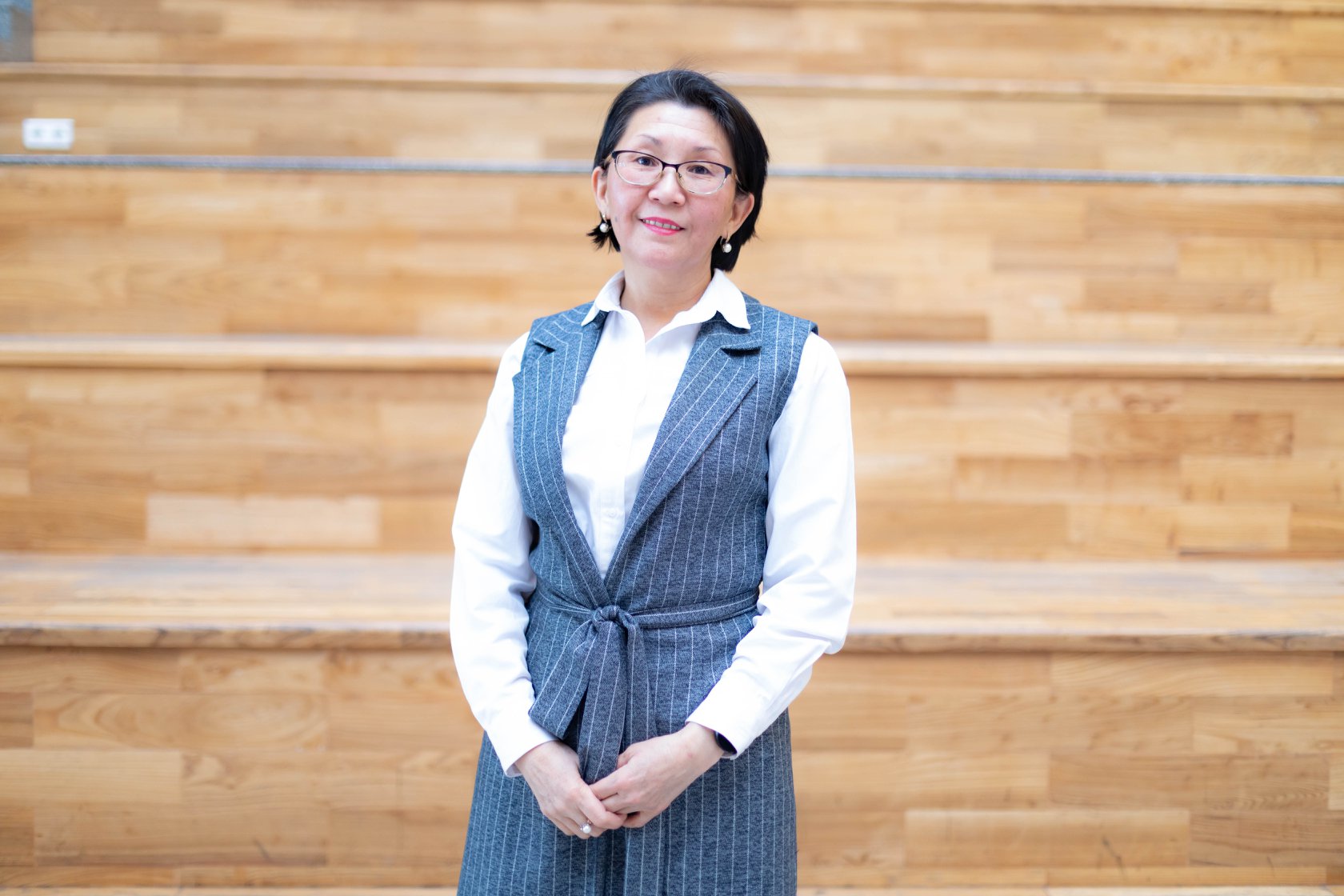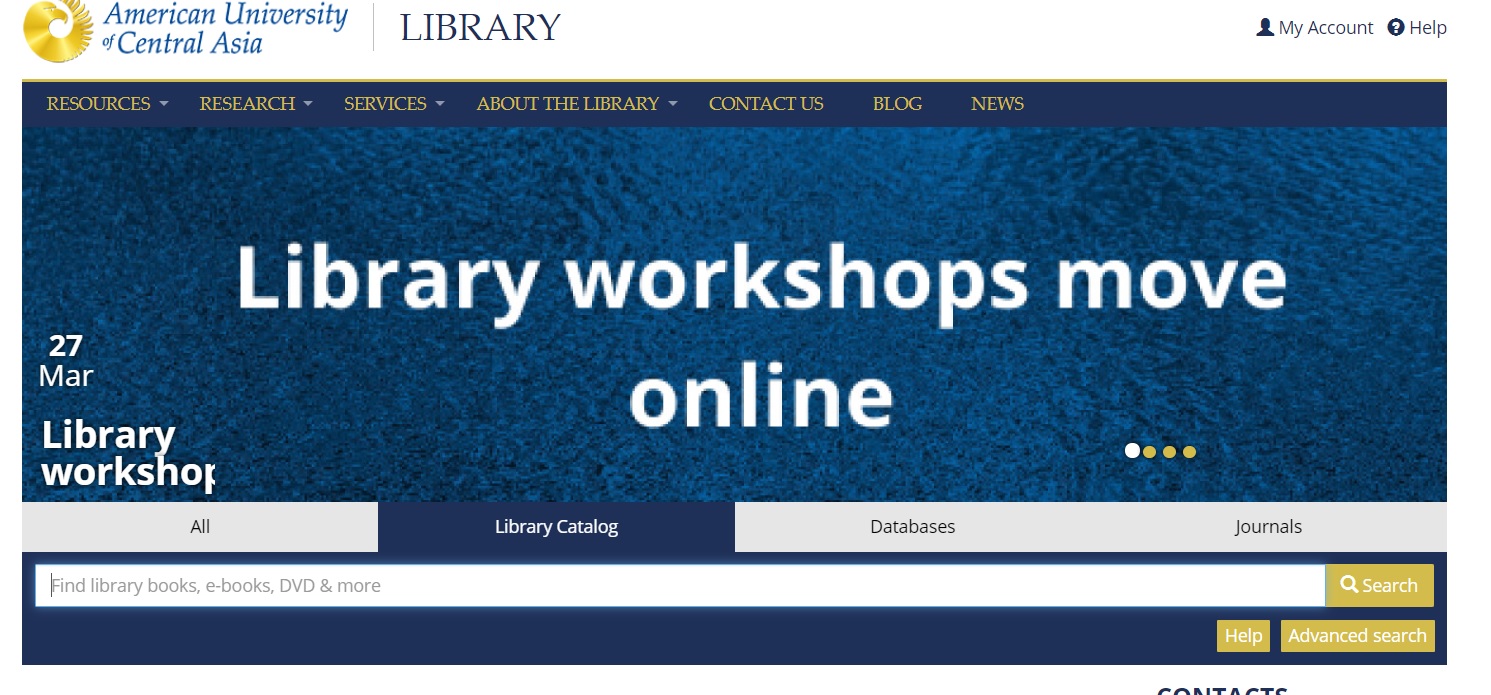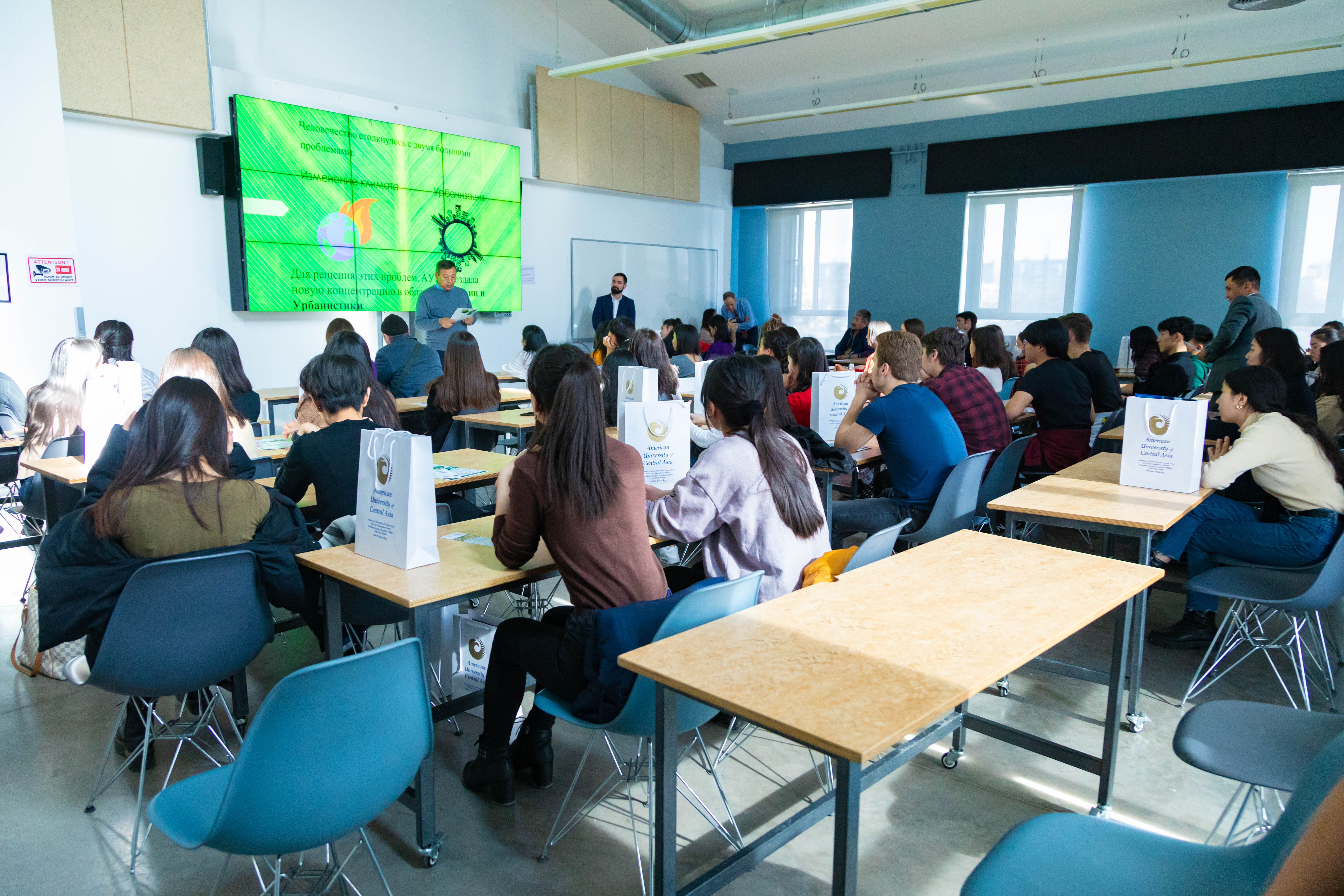May 6, 2020
Anthropology department Professor Cholpon Turdalieva told us about her experience of teaching online. Prof. Turdalieva highlighted a few aspects regarding how AUCA has responded to challenges generated by the pandemic and how our community entered the world of digital education.

In 1665, England faced the bubonic plague and “social distancing” orders emptied campuses throughout the country. The then 24-year-old Isaac Newton studied at Trinity College, Cambridge, was forced to return home. Being in isolation, he created his great mathematical theories, which revolutionized the world of natural sciences. 355 years have passed since then, and humanity is again forced to stay at home due to a new virus called COVID-19.
According to UNESCO, approximately 1.725 billion learners are already affected due to school closures in response to the pandemic. All nations and states are trying to find appropriate policies and solutions. Central Asians are also looking for workable programs in all areas of human life, but the education sector needs them most. The practice of distance learning has been launched and millions of schoolchildren and students all over the Central Asia region are currently studying online. Two months ago, due to COVID-19, more than 200, 000 Kyrgyz students, among them 1200 AUCA educates, continued studying in self-isolation. Faculty also had to work remotely. However, not everything works smoothly and efficiently and each faculty has his/her own story of adapting to a retraining situation and daily training of his own ‘technical and digital muscles’. Colleagues from Uzbekistan, Kyrgyzstan, Kazakhstan and Tajikistan spoke about the same difficulties related to online learning at the online talk “Challenges of Education in Central Asia during the COVID -19 Pandemic: Personal Perspectives” organized by the Association of Fulbrighters of Kyrgyzstan and the US Embassy in KR.
Concerning the pros and cons of my training, I would highlight a few aspects regarding how AUCA has responded to challenges generated by the pandemic and how we entered the world of digital education. More precisely, I would like to ask how I can facilitate the emergence of new “Newtons” among my students and how the virus catastrophe can help us to outline what kind of education AUCA and other universities in Kyrgyzstan should offer to students in the nearest future?
The transition to online learning at AUCA was not very difficult nor was unfamiliar to us, because for several years, AUCA has already used a mixed form of teaching that incorporated online services such as Moodle.com and even online courses and programs (e.g., the Master in Education program). In this sense, AUCA has definitely played an important role in shaping the e-education market in Kyrgyzstan and Central Asia. Moreover, AUCA made a transition to creating an electronic library, which has facilitated in providing teaching and research materials at these challenging times. Therefore, these pre-existing structures helped us less in switching to distance learning with greater ease. However, taking into account the fact that distant education must not compromise the mission of AUCA’s liberal arts agenda, some concern, anxiety, and stress has still arisen in me with regard to my classes.

However, thanks to the administration’s comprehensive assistance, which has consisted of the provision of IT trainings, computer devices for those who were in need, payment of Internet access, anxieties gradually began to disappear. Online teaching began to give timid results that were materialized at first in an online test or online presentation. Basic knowledge and skills necessary to adjust to Zoom and Webex and introduction to interactive online educational tools and platforms are generously provided by our colleagues from the AUCA Center for Teaching, Learning and Technology department. In the fight against the coronavirus, selfless work, inexhaustible determination, and the daily heroism of doctors and police officers are greatly appreciated. Similarly, one ought not to forget to appreciate the work of IT specialists, who stand at the forefront of the technological paradigm shift, testing, adapting, creating the technical equipment and programming conditions for the study and work of millions of people including students and teachers.
With regard to the positive aspects of online education, the following can be highlighted. First, the convenient access to the educational materials allows both students and teacher to manage well the structure, content, and resources of the lesson. In this regard, it shows how digital interaction and communication can be equally built and shared.
Another advantage is related to the students’ self-discipline and self-organization, which in current circumstances have become an indispensable requirement. Of course, there are very rare cases when sitting in a familiar and comfortable home environment, the student is more tempted to skip class by registering his presence at the beginning of it, and then imitating his virtual presence throughout the course of the lesson. If cases occur, I am powerless and cannot guarantee that all 60 students are included in the educational process. Therefore, in my opinion, the lecture form is not very convenient for online learning, as the feedback effect is lost. But 99% of AUCA students continue the tradition of a responsible attitude to studying, showing their interest and educational commitment primarily to themselves, then to the teacher, the university and finally, their parents. The student understands his/her future depends on his/her studies. Without doubt, the quality of students’ knowledge and skills hinge – to a large extent – on the teacher’s mastery and competency. But if a student does not have the internal motivation to learn, then the teacher will not be able to sow in him/her a Newton’s thirst for knowledge and curiosity.
Online learning has its positive aspects for the teacher as well. There was a need to attain and learn new additional skills and knowledge in accordance with modern information and tele-communication technologies and standards. Despite age, work experience and academic rank, teachers began to adjust themselves to the online lifelong education, the popular practice of continuing education during the lifecycle in the West. We are in the process of acquiring new competencies, additional to basic subject proficiency. On the whole, it definitely does increase the teacher’s professional stability and competitiveness.
However, it should be noted that for all the advantages and positive aspects of digital learning, there are certain problems and issues. As AUCA will continue to develop the format of online education, it is yet to be resolved how it will relate to the “off-line”, i.e., in-person instruction. Likewise, it is yet to be determined how electronic courses and the online work of the teacher will be evaluated; how ethical and legal norms related to the rights and protection of intellectual property and the possibility of training those teachers who want to continue to work online will be respected. It is known that the development of a new methodology for teaching a course takes at least half a year or more, and therefore, training teachers with e-learning methods will also require some amount of time.

An advantage of online education in future is that AUCA can develop online education for international students who, while remaining in their home country, study remotely, saving expenses on travel and accommodation. Online education also has a social and humanitarian dimension, as students from low-income families and students with disabilities will be enabled to study online while paying less for their instruction. This support family with lower social and financial capabilities.
Currently, online platforms are being developed in Central Asia by state organizations and private firms. I-Bilim, Sanarip-sabak, Bilim Bulagy and others through the national TV channels show lessons for preschool and schoolchildren. Bilingual digital pedagogy is slowly being developed in Kyrgyzstan. However, there is no a platform in English. In this regard, AUCA could take the lead in creating an online platform in English for international students who are majoring in medicine, computer sciences, communication, and other fields at the Universities of Kyrgyzstan. For example, more than 2500 students from India and Pakistan study medicine in English at Higher School of Medicine in Bishkek, but they really had certain difficulties when they shifted to online education.
In today's conditions of our struggle against a pandemic, living in conditions of self-isolation and self-discipline, and of course practice with online training, Nietzsche’s words very often come to mind
“That which does not kill us makes us stronger”. In the case of continued self-isolation and online training due to a new wave of the virus, AUCA already has some certain experiences, quite good examples and practices.